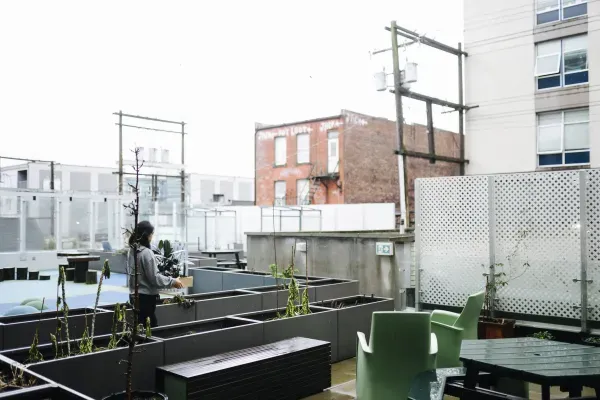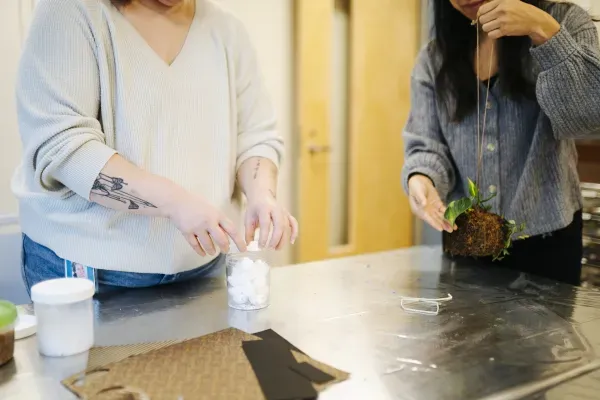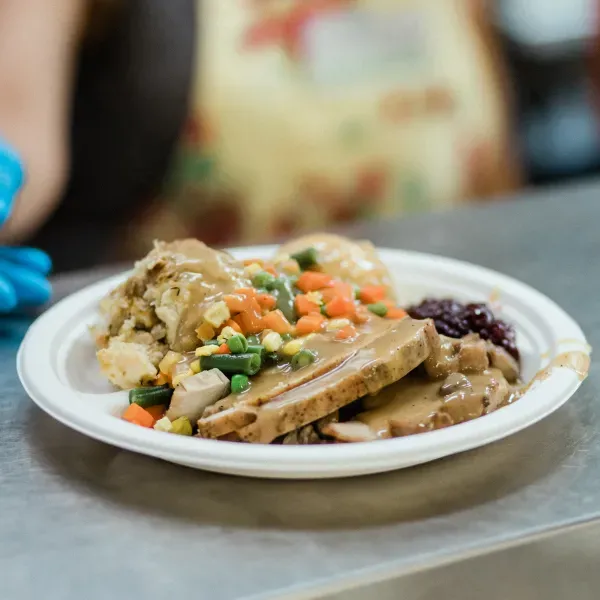
We love to highlight the intentional and inspiring programs that run behind the scenes at UGM. In the spirit of spring, we spoke with two staff from the Women & Families Centre about the horticulture program — a class that sees women and moms in recovery planting, growing, and harvesting everything from vegetables to flowers, directly on site. Here, team members Amanzi (Supervisor, Programs — Stabilization & Recovery) and Jessica (Interim Manager, Women’s Stabilization & Recovery) share how the simple act of gardening is building confidence and growing joy at UGM.
UGM: What was the inspiration behind having gardening at the Women & Families Centre?
Amanzi and Jessica: The vision was to run a therapeutic horticulture program — designed in collaboration with a horticulturist — to support participants in their growth, and to help the women see themselves and the world from a new perspective. Caring for a seedling, plant, or garden bed can mirror recovery and mothering. By nurturing the landscape, women can continue in their healing journey themselves.
UGM: What are some of the things women learn in horticulture class?
A+J: The women often start their classes by learning about a particular plant, pruning or maintaining the flowerbeds, or sometimes going on a walk around the neighbourhood to identify common plants that grow in the wild. Over their time, they also learn about food sustainability, harvesting, and more practical and transferable skills that they can take away with them upon completion of the program.
UGM: How does learning about plants support recovery?
A+J: Through gardening, the women develop a sense of purpose and improve their confidence. Watching things grow echoes their own recovery: they can see the physical progress in their gardens, and the plants act as metaphors to promote self-care. It’s also a recreational outlet that can help participants develop more hobbies and life rhythms outside of substances. Gardening nourishes the senses and helps women find consolation, inspiration, and focus in nature.

UGM: Is horticulture a year-round learning opportunity, or seasonal?
A+J: The program is year-round! It’s a delightful reminder of an important part of recovery and mindfulness: that everything is changing around us. The plants that flourish one summer may not be the same ones that flourish next year. In winter, the women make self-care products such as bath bombs, body scrubs, and lip balms using essential oils and lavender they have harvested in the previous season, and they grow plants that can thrive in dark and cooler environments. In spring, the women start to prune the flowerbeds and plant the vegetables, herbs, and flowers that will thrive in summer; in summer, there is a lot of maintenance and harvesting — the garden really thrives and becomes a jungle!
UGM: What has been the most encouraging thing about having gardens at the Women & Families Centre?
A+J: Seeing the garden flourish in the spring and summer months and hearing how excited the women are to be participating in the horticulture program. Generally, the women do not expect to enjoy the program as much as they do, and then it becomes their favourite program in the week. When other team members come up for meetings, they always want to sit by the window to enjoy the garden — seeing the progress every week is so exciting!
UGM: Do you have a story of a time gardening meant a lot to a program participant?
A+J: One of our moms grew a pumpkin! She planted the seeds as an experiment, and by the fall, there it was — we couldn’t believe it had grown so well! It was so lush and enormous, and she made so much baby food out of it! She even took a photo proudly holding her pumpkin.
Read on to find out how getting outdoors is lifting women’s spirits at UGM.


